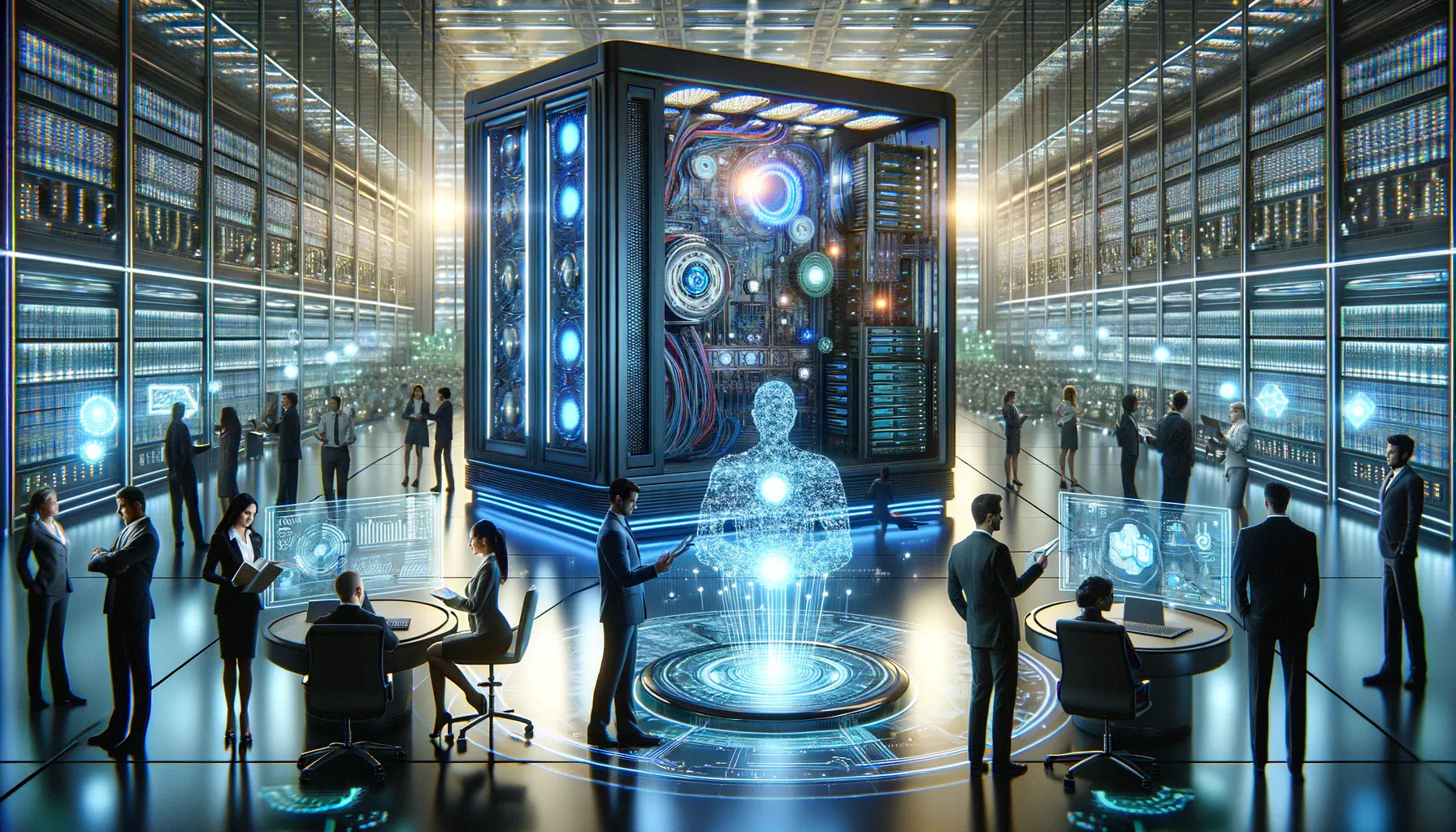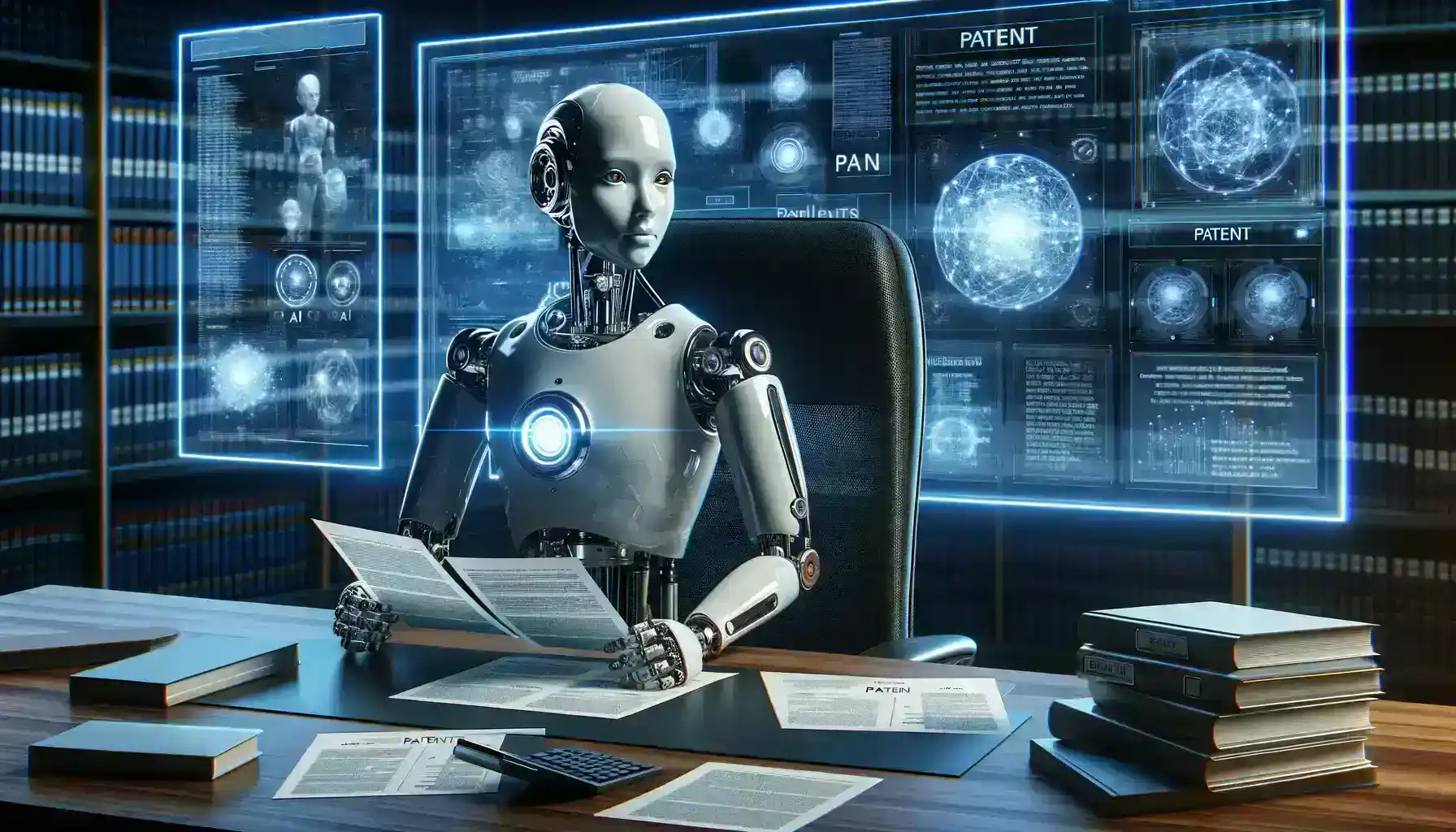Table of Contents
In today’s rapidly evolving technological landscape, artificial intelligence (AI) is not just a buzzword but a powerful force driving innovation across industries. One of the key indicators of AI’s impact is the proliferation of AI-related patents. In this article, we will go in-depth into AI patent trends, exploring five significant developments that are reshaping the future of technology and business.
1. AI Patent Trends: Unveiling the Future

Trend 1: AI in Healthcare
The healthcare sector is undergoing a groundbreaking revolution driven by AI-powered innovations. These AI Patent Trends advancements are not confined to theoretical concepts; they are actively changing how healthcare is practiced and delivered.
AI in Diagnosis and Treatment Recommendations:
One of the most compelling applications of AI in healthcare, aligning with the current AI patent trends, is its ability to assist in the diagnosis and treatment of diseases. Companies like IBM’s Watson Health have been pioneering in this space. Watson Health leverages AI to analyze vast amounts of medical literature, patient records, and clinical data to provide physicians with data-driven insights and treatment recommendations. This enhances the accuracy of diagnoses and assists healthcare professionals in making more informed decisions, contributing to the evolving landscape of AI patent trends in the healthcare sector.
AI in Drug Discovery:
The process of drug discovery is notoriously time-consuming and expensive. However, as part of the broader AI patent trends, AI is revolutionizing this process by analyzing biological data and predicting potential drug candidates. Insilico Medicine is a prime illustration of a company that utilizes AI to accelerate drug discovery and is at the forefront of AI patent trends in this field. They employ generative adversarial networks (GANs) and reinforcement learning to design novel molecules for various diseases, significantly reducing the time and resources required for drug development. This innovative approach not only expedites the discovery of new treatments but also represents a crucial development within the domain of AI patent trends, promising transformative advancements in the pharmaceutical industry.
AI in Patient Care and Monitoring:
AI is also transforming patient care by enabling remote monitoring and early intervention. Companies like Biofourmis use wearable devices and AI algorithms to track patients’ health in real-time. These devices can detect subtle changes in vital signs and alert healthcare providers to potential issues before they escalate. This proactive approach not only improves patient outcomes but also reduces the burden on healthcare facilities.
Trend 2: AI in Finance
Fraud Detection:
AI-powered fraud detection has become a cornerstone in the fight against financial crimes. Companies like JPMorgan Chase have harnessed the capabilities of AI to detect fraudulent activities swiftly and accurately, aligning with the broader AI patent trends. Their AI-driven fraud detection systems, a testament to ongoing innovation in this field, analyze vast amounts of transaction data in real-time, identifying unusual patterns and flagging potential fraud. This not only saves money but also safeguards customers’ financial well-being, showcasing how AI patent trends are shaping the future of financial security and risk management.
Automated Trading:
When it comes to trading, speed and precision are paramount. High-frequency trading firms, such as Citadel Securities, are at the forefront of leveraging AI algorithms as part of the evolving AI patent trends to execute trades at lightning speed, capitalizing on market opportunities that human traders cannot catch. These cutting-edge AI algorithms continuously analyze market data, news feeds, and historical patterns to make split-second trading decisions, leading to improved liquidity and market efficiency.
Real-Life Patents:
Several financial institutions have filed patents related to AI in finance. For instance, Bank of America holds a patent for an AI-powered chatbot that assists customers with financial transactions and inquiries. This patent reflects the growing trend of AI-driven customer service in the banking sector.
Trend 3: AI in Autonomous
The concept of self-driving cars and autonomous vehicles has transitioned from the domain of science fiction to a tangible reality. This transformation has been made possible by the integration of advanced artificial intelligence (AI) systems into the automotive industry. In this section, we will explore the patent trends in this exciting field and explore how AI is revolutionizing transportation, focusing on real-life illustrations from companies at the forefront of this technological revolution.
One company that has been instrumental in advancing AI in autonomous vehicles is Waymo, a subsidiary of Alphabet Inc. (formerly Google). Waymo’s self-driving technology has garnered significant attention due to its innovative approach to autonomous driving. They hold numerous patents related to AI and autonomous vehicles, ranging from sensor technologies to machine learning algorithms.
One notable patent held by Waymo is their patent on a “Method for Operating an Autonomous Vehicle to Transport a Passenger to a Destination.” This patent covers the intricate algorithms and systems that enable autonomous vehicles to safely transport passengers from point A to point B, taking into account real-time traffic conditions, road hazards, and passenger preferences. Waymo’s patent portfolio reflects its commitment to advancing the field of autonomous driving, emphasizing safety, efficiency, and convenience.
The implications of AI in autonomous vehicles extend beyond convenience. They have the potential to significantly enhance road safety by reducing human error, a leading cause of accidents. Additionally, the adoption of autonomous vehicles could lead to improved traffic management and reduced congestion in urban areas, ultimately making transportation more efficient and eco-friendly.
Trend 4: AI in Retail
Revolutionizing Customer Experiences and Operations
In the domain of retail, artificial intelligence (AI) has emerged as a transformative force, reshaping the way businesses interact with customers and manage their operations. Let’s explore into this trend by exploring real-life illustrations of how AI is making a substantial impact on the retail sector.
Cashier-less Stores: Amazon Go, a pioneering illustration, introduced the concept of cashier-less stores to the world. Utilizing a combination of computer vision, sensor fusion, and deep learning algorithms, Amazon Go allows customers to walk in, pick up items, and simply walk out without the need for traditional checkouts. The technology automatically detects items selected and charges customers through their Amazon accounts, providing an incredibly seamless and frictionless shopping experience.
AI-driven Customer Service: Chatbots and virtual assistants are becoming ubiquitous in online retail. Companies like Sephora use AI-powered chatbots to provide personalized beauty advice and product recommendations. These chatbots can answer customer queries 24/7, improving customer satisfaction and reducing the workload on human customer service agents. Additionally, AI can analyze customer behavior and preferences to offer tailored marketing recommendations.
Visual Search and Recommendation Engines: Retailers like Pinterest and ASOS utilize AI-driven visual search and recommendation engines. These technologies allow customers to take pictures of items they like or use images as search queries. AI analyzes these images to provide product suggestions, creating a more visual and personalized shopping experience.
Trend 5: AI in Legal Services
AI’s impact on legal services is undeniable, and several real-life companies are leading the charge in automating various aspects of the legal profession.
Legal Research
Traditionally, legal research involved hours of poring over legal documents, statutes, and case law to build a strong legal case or provide accurate legal advice. However, AI-powered platforms like ROSS Intelligence have revolutionized this process. ROSS, for instance, utilizes natural language processing (NLP) and machine learning algorithms to sift through vast legal databases quickly. It can provide lawyers with highly relevant cases, statutes, and precedents in a matter of seconds, drastically reducing research time and improving the quality of legal arguments. This innovation aligns with current AI patent trends, where advancements in artificial intelligence and natural language processing are reshaping various industries, including law.
Contract Analysis
Contract analysis has traditionally been a time-consuming and error-prone aspect of legal work. However, recent advancements in AI technology, specifically in the domain of AI Patent Trends, have revolutionized this field. Solutions like ThoughtRiver utilises machine learning algorithms to automatically read and analyze contracts, making the process significantly more efficient and accurate.
These AI systems have the capability to identify key clauses, potential risks, and deviations from standard language within contracts. Moreover, they incorporate AI Patent Trends data to stay up-to-date with the latest developments in intellectual property law and patent trends. By doing so, these AI-powered tools not only accelerate the contract review process but also ensure that important details related to patents and intellectual property aren’t overlooked.
Document Review
AI-powered document review platforms, such as Relativity and Kira, excel at handling large volumes of documents in litigation, due diligence, and regulatory compliance. They employ NLP and machine learning to identify relevant documents, categorize them, and extract essential information. By automating this labor-intensive task, legal professionals can focus on higher-value work and make more informed decisions faster. In addition, keeping an eye on AI Patent Trends can help legal teams stay ahead of the curve in leveraging cutting-edge technology for document analysis and review.

The Impact of AI Patent Trends
AI patent trends have far-reaching implications for businesses, consumers, and society as a whole.
Economic Growth: AI-driven innovation fosters economic growth by opening up new markets and creating opportunities for both startups and established corporations. Companies like Google and Amazon have heavily invested in AI patents, allowing them to develop cutting-edge products and services such as voice assistants (Google Assistant, Amazon Alexa) and recommendation engines. These innovations not only enhance user experiences but also generate substantial revenue streams, contributing to overall economic expansion.
Ethical Considerations: AI patent trends raise ethical questions surrounding privacy, bias, and accountability. Companies like Facebook have faced scrutiny for AI-driven algorithms that may inadvertently spread misinformation or exhibit bias. Ethical considerations are pushing businesses to adopt responsible AI practices, emphasizing transparency, fairness, and data privacy.
Societal Impact: AI patents are transforming how society functions. For instance, Tesla’s AI-driven autonomous vehicles are poised to revolutionize transportation. While this promises increased safety and efficiency, it also necessitates discussions on regulation, safety, and the societal implications of widespread autonomous vehicles.
Future Prospects
The landscape of AI patents is characterized by its dynamism and continual evolution. As we look ahead, several key aspects define the future of AI patents, with potential breakthroughs, regulatory challenges, and contributions to addressing global issues at the forefront.
Breakthrough Innovations: Leading technology companies, such as Google’s DeepMind, IBM, and Tesla, are consistently pushing the boundaries of AI through patent-worthy innovations. Google’s DeepMind developed AlphaFold, an AI system that predicts protein structures with remarkable accuracy. Such breakthroughs not only advance scientific understanding but also have the potential to revolutionize industries like pharmaceuticals and healthcare.
Regulatory Challenges: As AI becomes more integrated into daily life, regulatory challenges arise. Companies like Facebook and Meta have faced scrutiny over their AI-powered content moderation systems. The future will likely see increased efforts to strike a balance between innovation and ethical, legal, and privacy concerns, resulting in new patent regulations and guidelines.
Global Challenges: AI patents also hold the promise of contributing to addressing global challenges. Tesla’s advancements in AI-driven autonomous vehicles have the potential to reduce traffic accidents and emissions, addressing climate change. Additionally, AI-powered diagnostic tools from companies like PathAI have the potential to improve healthcare access and reduce healthcare disparities.

Conclusion
AI patent trends are not just reshaping the future; they are defining it. From healthcare to finance, transportation to retail, and even the legal sector, AI is revolutionizing industries, offering unprecedented opportunities and challenges. Staying informed about these trends is crucial for businesses and individuals looking to harness the power of AI and navigate its impact on society responsibly. As we move forward, the world of AI patents promises to be an exciting, ever-evolving landscape, and being at the forefront of these developments is key to seizing the opportunities of tomorrow.